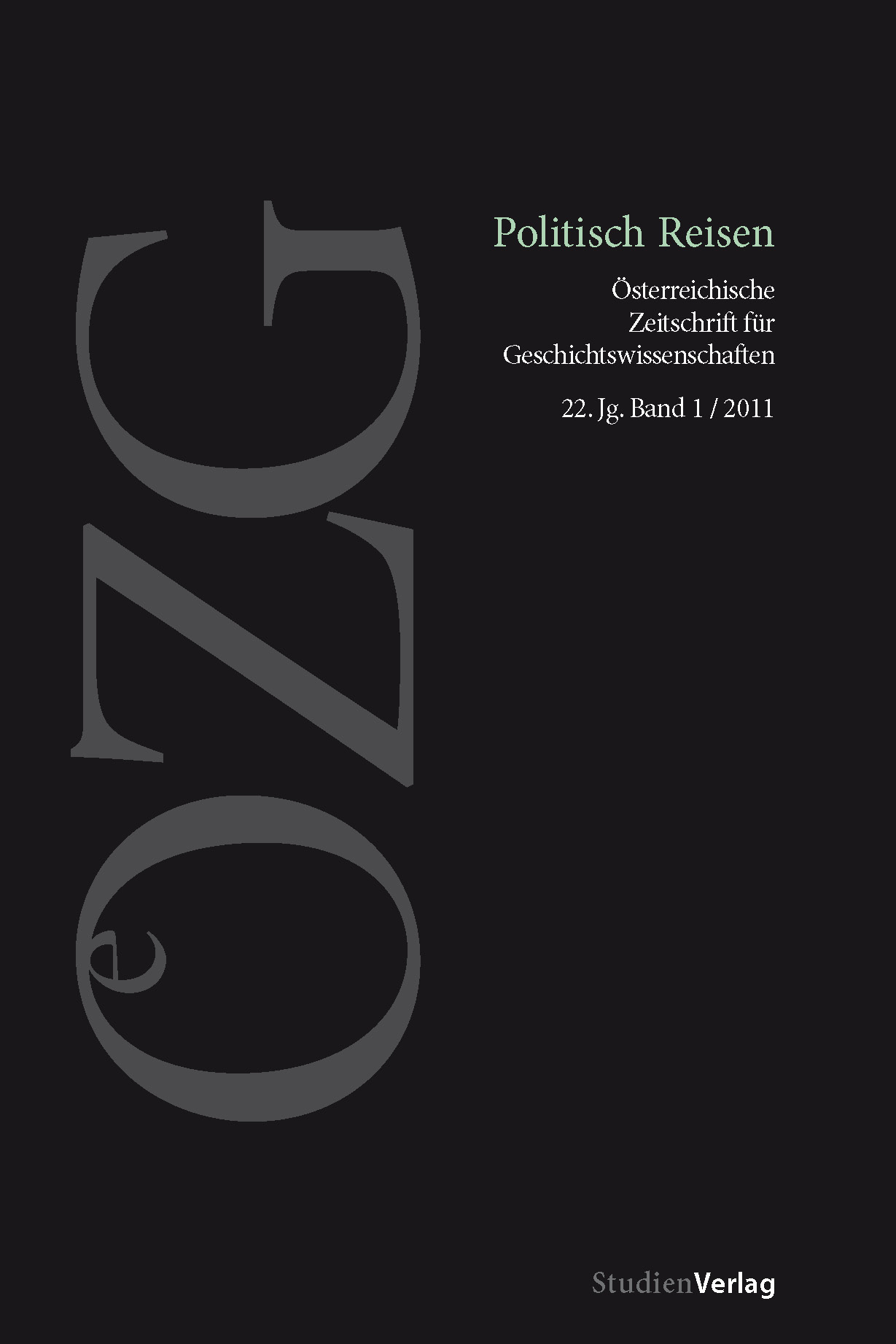Emissaries of Nazism
German Student Travellers in Romania and Yugoslavia in the 1930s
DOI:
https://doi.org/10.25365/oezg-2011-22-1-7Keywords:
travel, National Socialism, students, Romanian Germans, Yugoslav GermansAbstract
In the 1930s, National Socialist students travelled from Germany to south-eastern Europe on study visits and ‘Land Service’ assignments organized by the Deutsche Studentenschaft with the aim of reaching and influencing German-speaking minority communities in Yugoslavia and Romania. Inspired by the idea of a single German Volkstum transcending state borders, the students saw themselves as emissaries of Nazism, promoting Nazi racial doctrines and techniques of social and political organization, and covertly cooperating with the ‘renewal movements’ (Erneuerungsbewegungen) of the 1930s that sought to align Romanian Germans and Yugoslav Germans more closely with the Reich. The article examines a range of trips by Reich German students to Yugoslavia and Romania between 1933 and 1939 while focusing particularly on the reports by a group of women students who travelled to Romania in 1935. It asks how far these ‘missions’ to ‘Germandom abroad’ provided additional momentum for the Nazi student movement in the Reich and explores how male and female students positioned themselves with dis- tinct roles in a ‘struggle’ that continued outside the borders of the Reich after the consolidation of National Socialist power in Germany. It shows how the students on their travels to south-eastern Europe looked for a ‘homeland away from home’ but were also gratified by discovering elements of the ‘exotic’ and ‘remote’ in the locations they visited. Finally, it asks how far travel and mobility functioned for men and for women as a commodity associated with power and influence, to be deployed in building their own careers, but also to be harnessed to the cause of widening the horizons of ‘Germans abroad’.


